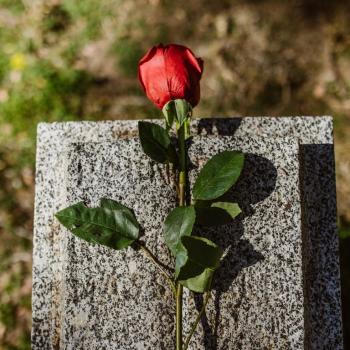[The Indians] had no right to a country merely because they were born here and then acted like savages. The white man did not conquer this country. And you're a racist if you object . . . You believe that if someone is born in a magnificent country and doesn't know what to do with it, he still has a property right to it. He does not. . . . What were [the Indians] fighting for, in opposing the white man on this continent? For their wish to continue a primitive existence; for their 'right' to keep part of the earth untouched—to keep everybody out so they could live like animals or cavemen. Any European who brought with him an element of civilization had the right to take over this continent . . .
What Rand taught about native Americans could be applied to any who disagreed with her views; and though many might rebel at such a blunt statement, they incorporated elements of her perspective and poisoned their own understanding of what it is to be a person. Today we are reaping the unpleasant results of her Nietzschean nihilism reinforcing what was most blind in our cultural individualism, inherited from Protestantism.
Along the way many Americans forgot what it meant to be a member of society rather than just being out for themselves. It is symbolic that Americans are allowing the right wing, aided by cynical 'liberals', to destroy the most visible benign public institution that symbolizes us all as a people: the Post Office.
"I Am Because We Are."
Individualists like to brag of their competence. There is an irony here. The claim of individual competence is closer to the truth in hunting and gathering societies than today. A 12th-century American Indian, dropped into a wilderness, would manage much more successfully by himself than a 20th-century businessman, or even a typical farmer. And yet . . .
And yet these men and women, whose lives depended to a much greater extent than ours on their own personal abilities, were acutely aware they were part of a community, their tribe. From what we know of their lives, ostracism was the greatest punishment. Nor were these people simply interchangeable. Over and over those who have lived among hunter-gatherers have written about their individuality and resourcefulness. The drivel about Indians as collectivistic savages promoted by Ayn Rand and other poseurs of modern 'individualism' was never remotely true.
It is we moderns who are utterly dependent on a society that no human being can understand except abstractly. Those who know how a computer works are unlikely to know how the ingredients to build one are produced from the earth. And those who know parts of that do not know how to build an automobile, or raise wheat in large amounts, and on and on. The division of labor, and the division of knowledge, extends farther now than at any other time. Regarding most things we encounter in our world, we know how to push buttons or pay someone for knowing what we do not in order to help us.
This world expands the realm of choice and so the potential for individuality to flower, but it does so by immersing us within a society we do not understand, did not create, and currently are undermining, in no small part because of the poison of 'individualism' pushing aside genuine respect for individuality. Our individuality grows with our deepening dependence on a society in which our own sphere of competence is a smaller and smaller element of the whole.
There is a Pagan African proverb that I think gets it right: "I am because we are."
Individuality, the "I," is very real, but it is real in a way analogous to how a photon is a particle. Ask certain questions in an experiment and we get results suggesting photons are particles. Other questions suggest they are waves. In fact we cannot visualize what a photon is. And this is without even bringing in quantum entanglement.
Individuals are at least as complex and paradoxical as photons. Individualism is an ideology as wrong headed as believing that photons are only particles, despite the evidence to the contrary.
The worship of individualism explains why even honest people can believe they have accomplished everything that they are on their own merits. It blinds them to the social context that empowered their actions and gave them opportunities they had the insight to see. An American individual is as much a product of the American social ecosystem as a buffalo or coyote is a part of its natural ecosystem. And of course the American social ecosystem depends on the natural ecosystem on which it depends.
But individualism is blind to both the social and the natural ecosystem. As this society becomes more individualistic it becomes less and less capable of maintaining the social and natural ecosystems that make it possible. Hence our society's autistic relationship to the wider world, human and natural alike, and the autistic relationship of all too many Americans to their own society.





